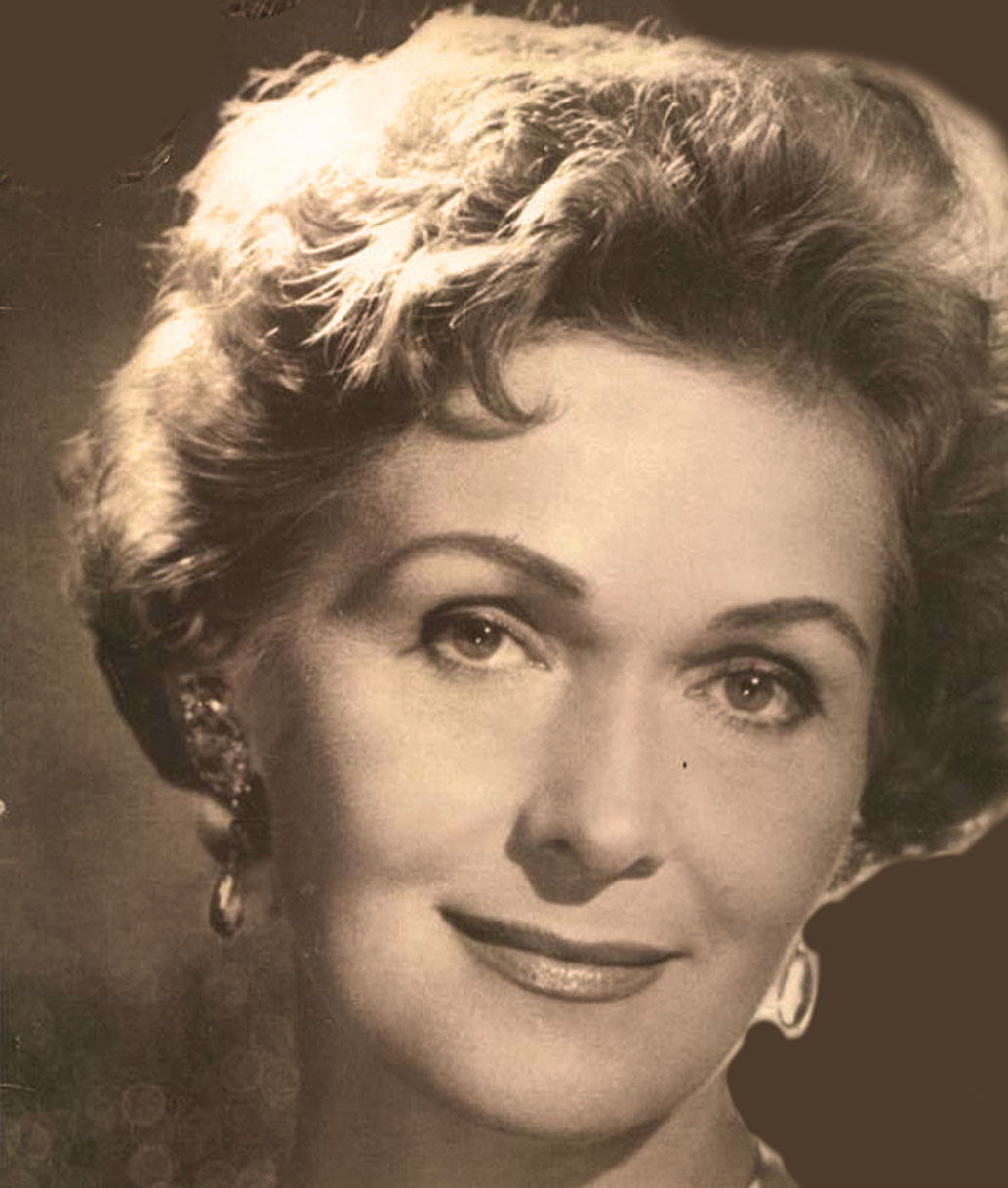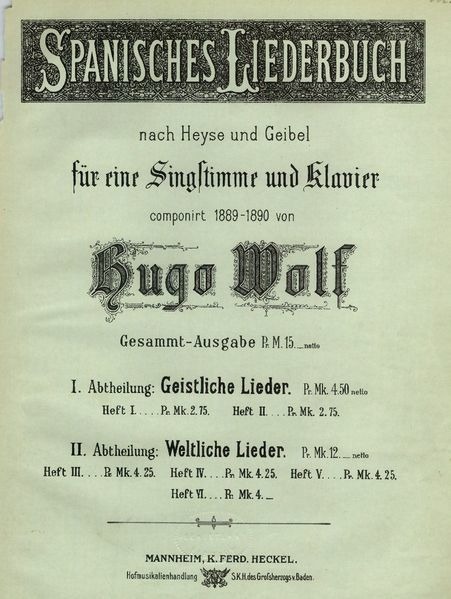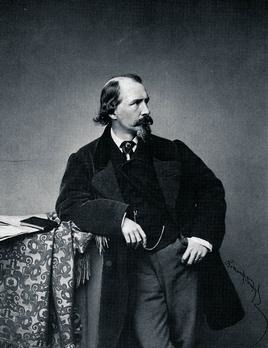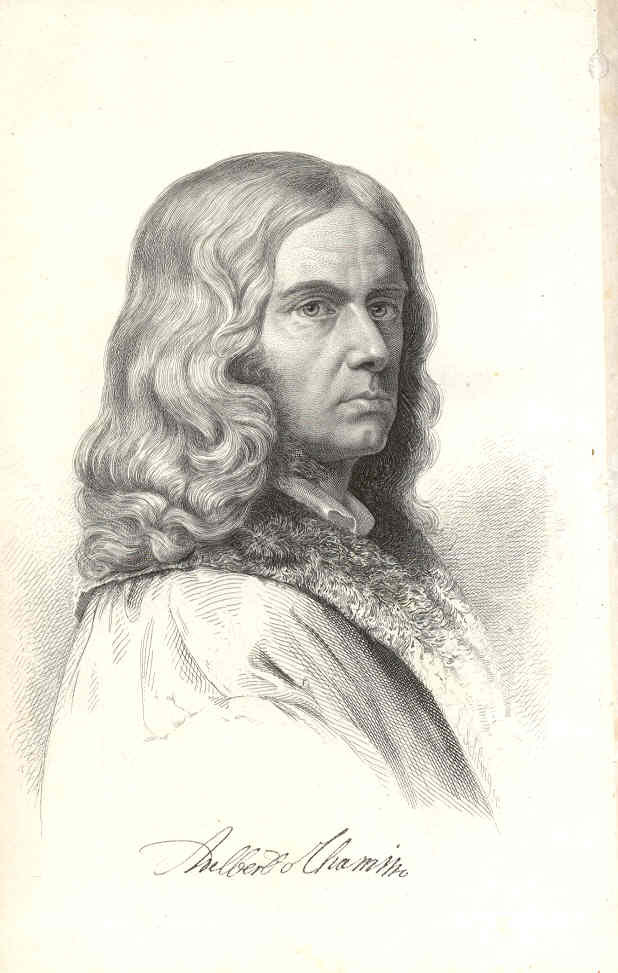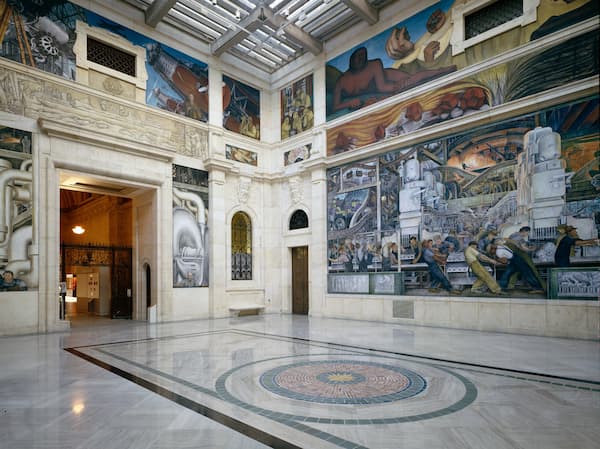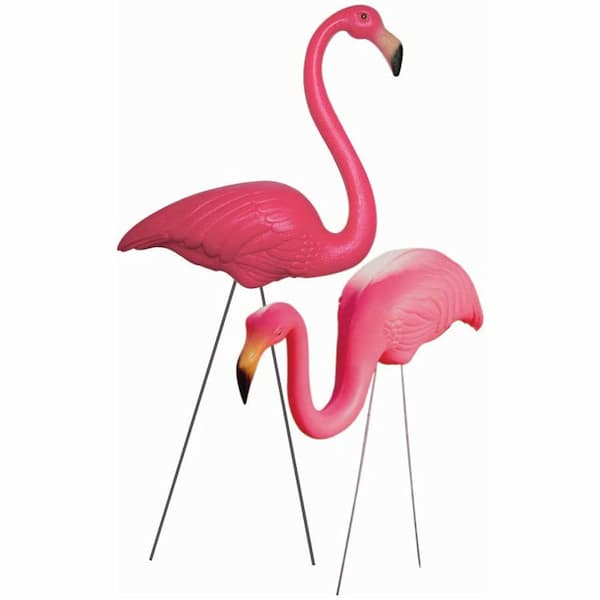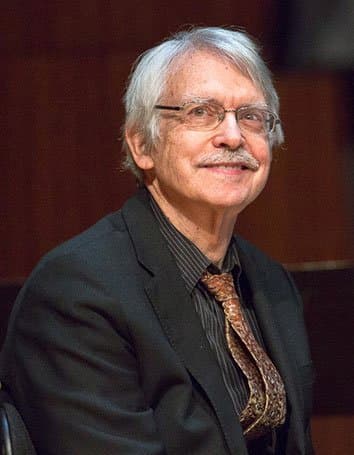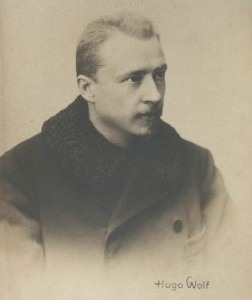
Hugo Wolf (1885)
In 1888, in a compositional fury, he wrote the Mörike-Lieder, a collection of 53 songs; the Eichendorff-Lieder, a collection of 20 songs; and then the Goethe-Lieder, a collection of 51 songs, followed in 1890-91 by the Spanisches Liederbuch, a 2-part collection of 10 sacred and 33 secular songs, before starting the Italienische Liederbuch, 46 songs, in 1891 and completing it in 1896. Wolf made an effort to find and set poems that other composers had missed, making his art songs unique statements.
The Mörike-Lieder are settings of the poetry of Eduard Mörike (1804-1875), a German Romantic poet. Wolf began setting the poet’s work in 1886, and set more of his poetry to music than any other composer. Mörike’s poems are simple and clear, but not simplistic. In some cases, his poetry has been mistaken for folk poetry, so much a part of the country’s language has it become.
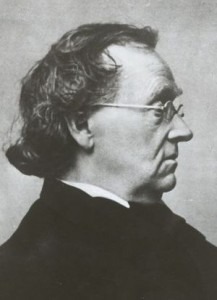
Eduard Mörike
Wolf: Mörike-Lieder: No. 47. Die Geister am Mummelsee (Christianne Stotijn, mezzo-soprano; Joseph Breinl, piano)
A more playful setting is the Elfenlied (Elf Song). An elf awakens in the middle of the night, sees a glow on a wall and creeps up to peer in a window and see the wedding feast, but instead hits his head on the wall – it was only a glowworm and a lot of imagination. We conclude with the poet telling us the elf is crazy: Gukuk! (Cuckoo). Listen for the bird imitation at the end.
No. 16. Elfenlied
In 1888, Wolf also took up the poetry of Joseph Freiherr von Eichendorff (1788-1857). Eichendorff held a seminal position in the new Romanticism. His novella, Aus dem Leben eines Taugenichts (Memoirs of a Good-For-Nothing) tells the story of a miller’s son who rejects his familial career, becomes a gardener, falls in love with a nobleman’s daughter who is out of his class. He flees to Italy and then returns and discovers she was adopted, and therefore he could marry her. A love story across class and country boundaries, it was the kind of story that the period loved. The use of dream symbolism mixed with realism, and wanderlust and love, became standards of the Romantic genre.
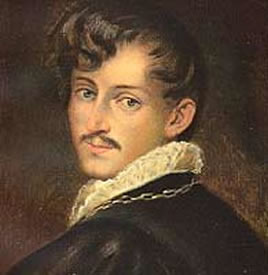
Joseph von Eichendorff as a young man
One song that looks at the evening a different way is song 8: Nachtzauber (Night magic). The poet speaks of hearing the water running between the stones and we hear that in the delicate piano line. The night descends from the mountains and we hear the vocal line rise and then descend. Flowers bloom in the moonlight, the nightingale sings, and it all closes with a lament for all that has been lost, now that the poet has been fatally wounded by love. The song has flowing lines and abrupt stops and we can see just what fine control Wolf has gained over the poetry and its declamation.
Wolf: Eichendoff Lieder: No. 8. Nachtzauber (Ian Bostridge, tenor; Antonio Pappano, piano)
Compare this with the sturdy march in Unfall (Mishap). Our poet is walking in the countryside and is confronted by an armed youth. The poet runs at him and falls and the youth shoots him and laughs: it was Cupid and ever since then, the poet had had no end of problems. The irony comes through perfectly.
No. 15. Unfall (Dietrich Fischer-Dieskau, baritone; Gerald Moore, piano)

